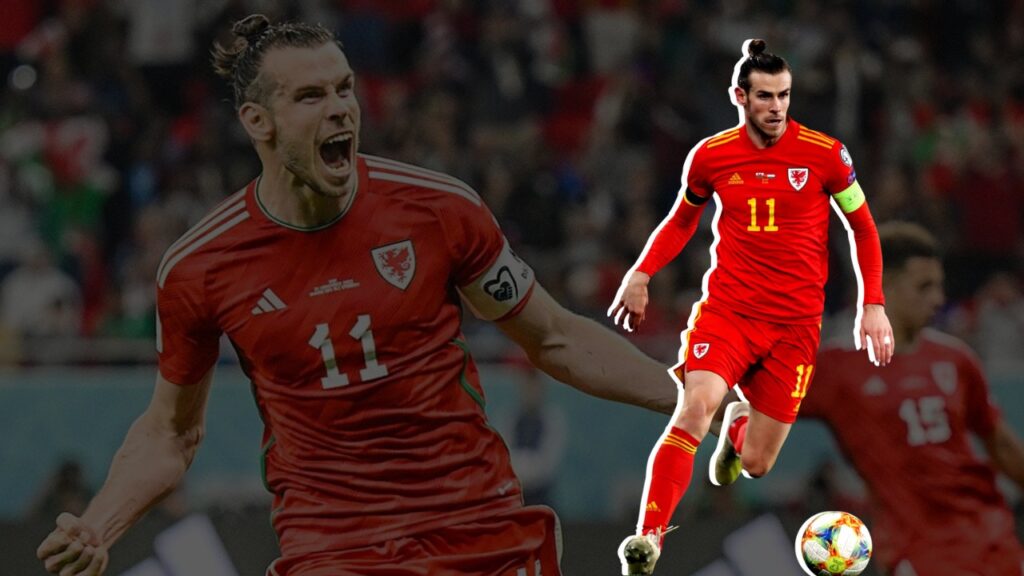His relationship with the Real fan base may have soured in his last few seasons at the club, but Bale’s goals in the 2014 and 2018 Champions League finals will always feature prominently in the highlights reels of the world’s biggest football team.
Just who was Gareth Bale, and how good a footballer was he? Good enough to earn a $100m transfer to Real Madrid when he was 24, good enough to score the decisive goals in two Champions League finals, and win a Copa del Rey almost on his own. But the second half of his nine-year spell at the Santiago Bernabeu was an ordeal, marked by a near-complete breakdown in his relationship with the club hierarchy and fans. His agent’s public utterances didn’t help, and neither did Bale making it clear that playing for Wales was the pinnacle as far as he was concerned.
In 2012-13, when he won Premier League Player of the Season, and the corresponding awards from his fellow professionals and football writers, Bale had as good a season as English football has seen. Though his Tottenham Hotspur team were pipped to the final Champions League spot, Bale’s 26 goals in 44 appearances – including 21 from 33 Premier League games – were a huge factor in Real breaking the bank to get him.

The club had been scouting him for years, and had already seen what he could do at the highest level. In 2010-11, he had scored a Champions League hat-trick against an Internazionale side that had won the treble the previous season. In the return fixture at White Hart Lane, Gale ran Maicon, Inter’s celebrated Brazilian right-back, ragged. A game built on sheer pace, power and no little skill meant he was soon on the radar of the world’s biggest clubs, and Spurs actually did well to hold on to him for another two seasons.
He joined a Madrid team where Cristiano Ronaldo was in his prime. Karim Benzema was also there, having tallied 87 goals since moving from Lyon in the same summer that Ronaldo arrived from Manchester United. As a trio, they scored 97 goals in 2013-14, as Real embarked on a quest for the Decima, their 10th European Cup/Champions League title. The drought by then had stretched over a decade, with the fans’ plight made worse by Barcelona winning the competition thrice between 2006 and 2011.
In retrospect, Bale never scaled the heights or achieved the consistency of that first season in Madrid. The Copa del Rey final against Barcelona featured a trademark Bale goal, knocking the ball ahead on the left touchline, and then screeching past the hapless Marc Bartra as though he were a statue before the clinical finish through the goalkeeper’s legs. Gerardo Martino, Barcelona’s coach at the time, spoke later of how demoralising it was to see an opponent sprint like that so late in the game.
A few weeks later, with Sergio Ramos’s 93rd minute header having taken the Champions League final into extra-time, Bale scored perhaps the biggest goal of his career. Angel Di Maria’s surging run into the penalty area from the left set it up, but Bale’s pace had taken him into the box, and he was perfectly placed to head in from a tight angle after Thibaut Courtois had palmed away the Argentine’s strike. Late goals from Marcelo and Ronaldo would give the scoreline a lopsided look that Diego Simeone’s doughty Atletico side didn’t deserve, but there’s little doubt that Bale’s leap and finish was the game-changer.
Two years later, it was his flick from a Toni Kroos free kick that caused utter confusion in the Atletico penalty area, allowing Ramos to apply the finish touch from a possibly offside position. This time, the Madrid derby in a Champions League final went to a penalty shooutout, with Bale one of those to score as Real prevailed again.
By then though, the mood in Madrid had started to turn. Bale was often brilliant when he started, scoring 19 times from 23 La Liga appearances, but frequent absences through injury and his obsession with golf were starting to test the patience of both fans and media alike. Neither did the fact that he seemed much more invested while wearing the Welsh shirt. In that unforgettable summer, a Wales team playing a major tournament for the first time since the 1958 World Cup stormed into the semifinals of the European Championships, inspired by some virtuoso displays from their star player.
A recent poll may have seen John Charles, the talisman of the 1958 team, voted Wales’s greatest ever player, but few men have transformed a national team’s fortunes like Bale did. In the early years of his career, Wales were ranked outside the top 100 in the FIFA rankings. Euro 2016 changed the narrative, and further qualifications for the Euros in 2020 and last year’s World Cup reinforced the feeling that they were a team to be avoided.

And unlike Welsh stars of the past like Ryan Giggs, who played only 64 times for his country despite having a stellar 24-season career with Manchester United, Bale’s commitment to the Dragon on the flag was total. Both his 111 caps and 41 goals for his nation are records, and few men have scored as many decisive goals for a small country.
Despite the fraying of bonds at Madrid, there was still time for a big reminder of Bale’s talents in the Champions League final of 2018. It was to be Bale’s last truly productive season in Madrid, with 21 goals from 39 games. The two most important ones came from the substitutes’ bench in Kiev. With nearly 61 minutes on the clock, and the game tied at 1-1 with Jurgen Klopp’s Liverpool, Zinedine Zidane took off Isco and threw on Bale.
Within 120 seconds, the coach was celebrating with a whirling hand gesture as Bale summoned up a goal comparable to Zidane’s unforgettable volley against Bayer Leverkusen in the 2002 final. When the cross came in from the left, Bale had his back to goal, but the bicycle kick was struck with such power and precision that Loris Karius in the Liverpool goal had no chance. With seven minutes left in normal time, Bale would make sure that the trophy returned to Madrid with a wicked swerving drive from distance that Karius could only punch into his own net. Debates rage to this day about whether the Liverpool keeper was suffering the effects of concussion after an earlier challenge from Ramos, but the half hour he spent on the pitch was more than enough for Bale to prove his point.
Maybe he could have left the Bernabeu then instead of overstaying his welcome. The lack of warmth in tributes from Spain has been noticeable, with only Toni Kroos and Marcelo of his former teammates applauding his career on Instagram. But with the fullness of time, and greater perspective, maybe everyone will recognise just what Bale did. A tally of 106 goals, including 16 in the Champions League, for Real doesn’t tell the full story. Bale was a man for the big occasion, and he showed that more than once.




